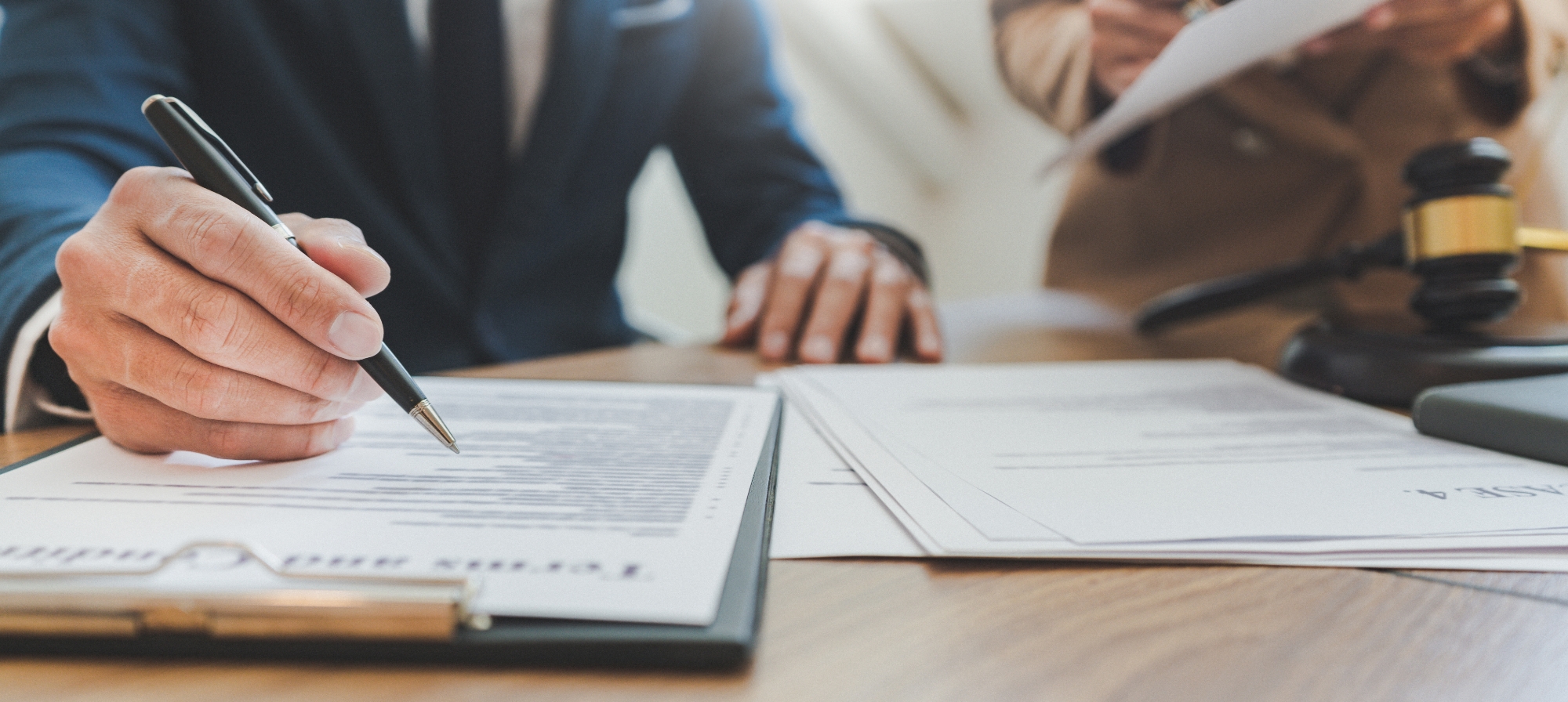Filing for bankruptcy is a major life event that involves lots of confusing paperwork, conflicting emotions, and competing priorities. Because bankruptcy law is so complex, it is difficult to know what to do and when to do it.
Not only that, but the bankruptcy process can be further complicated if the debtor has received, expects to receive, or is eligible to receive a personal injury claim. Individuals in this situation are often worried about losing their personal injury claim, and they naturally want to protect it.
Fortunately, certain bankruptcy laws protect personal injury claims, but taking the necessary steps requires know-how and understanding of the law.
Understanding Chapter 7 and Chapter 13 Bankruptcy in the Context of Personal Injury Claims
When a person in debt (debtor) files a bankruptcy petition, it creates a new legal entity called the bankruptcy estate, which is administered by a bankruptcy trustee. The indebted person then has a legal obligation to disclose all properties and assets (including a personal injury claim) to the bankruptcy estate.
Filing Chapter 7 bankruptcy allows debtors to clear most types of debt. The role of the bankruptcy trustee is to take non-exempt property and assets in the estate and pay creditors using proceeds from the sales of those items before the person’s remaining debts are discharged.
The laws that govern Chapter 7 bankruptcy allow the trustee to act on the debtor’s behalf. If, for example, the debtor sustained an injury and is eligible for compensation, but hasn’t yet filed a claim, the bankruptcy trustee can file one for the debtor. The trustee can even select an attorney for the debtor and determine whether and when to settle the claim. In many cases, this leaves the indebted person with little or no say in the matter.
Filing Chapter 13 bankruptcy, on the other hand, allows the debtor to reorganize their debts. The bankruptcy trustee mediates negotiations between the debtor and creditors to help strike a fair balance between the interests of both sides. Chapter 13 bankruptcy leaves more flexibility for the debtor, and it takes post-bankruptcy filing activities, properties, and assets into consideration until the bankruptcy proceedings have been closed.
Disclosure of Personal Injury Claims in Bankruptcy
Bankruptcy requires the debtor to tell his or creditors about any property or assets the debtor holds. Failure to disclose all properties and assets, even unintentionally, can constitute bankruptcy fraud.
As part of this requirement, debtors who suffered from a personal injury prior to filing for bankruptcy are required to disclose the injury and any compensation they receive or expect to receive (total award amount minus attorney fees). Once all items are disclosed, the process of protecting a personal injury claim with exemptions can begin.
Exemptions for Personal Injury Claims
Federal and state governments have different laws regarding exemptions for personal injury claims, and these laws can vary from state to state. The decision to use federal or state exemptions will depend on the debtor’s properties and assets, whether the debtor wants to protect them, and which system of exemptions will benefit them the most.
Federal Exemptions for Personal Injuries
Both Chapter 7 and 13 federal bankruptcy laws allow debtors to protect personal injury claims through exemptions. During a bankruptcy proceeding, a debtor can claim up to $23,675 of compensation received for a bodily injury as exempt from the bankruptcy proceedings. Compensation for emotional pain and suffering, however, can’t be claimed as exempt.
Debtors can also use a general exemption, also known as a “wildcard” exemption, to further protect up to $1,250 of a personal injury claim. Additionally, if the debtor did not use all his or her federal homestead exemption, they can protect up to $11,850 more. Using all applicable federal exemptions, a debtor can protect up to $36,775 of their personal injury claim’s value.
Texas Exemptions for Personal Injuries
Texas doesn’t have its own exemption laws to protect compensation from personal injury lawsuits, nor does the state have a wildcard exemption. This means that Texas residents who have a personal injury claim and are filing for bankruptcy should generally rely on the federal exemptions to protect their claim’s value.
Other Notes on Protecting Personal Injury Claims in Bankruptcy
If an injury occurs after you file for Chapter 7 bankruptcy, there is no need to disclose it, and you can keep any financial recovery. Because Chapter 13 bankruptcy takes post-bankruptcy filing activities into consideration, though, compensation awarded for a post-filing injury during Chapter 13 proceedings must be disclosed to the bankruptcy trustee.
If you haven’t yet filed for bankruptcy and disclosed your injury, it might be tempting to forego the disclosure altogether, but this is a bad idea because it creates a criminal liability. Bankruptcy trustees can (and will) check records after a bankruptcy case ends to see if a debtor filed a personal injury claim from a pre-bankruptcy injury.
One factor that can make it more difficult to protect your personal injury claim is if you combine it with other funds. A trustee could argue that once the claim mingles with other funds, it’s no longer distinguishable from other money in the account and is no longer exempt as a result.
Individuals filing for bankruptcy who have had a personal injury claim may wonder what happens if they’ve already spent the money they received from their claim. Can the trustee get it back?
The answer is that it depends. If you spent the claim money during normal everyday activities like grocery shopping, rent payment, car or insurance payment, or other living expenses, the trustee is unlikely to get the money back. If the claim money was spent suspiciously over a short period of time, transferred to a friend or family member, or used to pay certain preferred creditors, though, the trustee may be able to recover the claim money.
Of course, since each bankruptcy filing and personal injury claim is different, it’s impossible to say which of the circumstances outlined in this article will apply to your unique situation without learning the facts of your case. The best way to protect your claim is to consult an experienced and qualified attorney who understands the interaction between bankruptcy and personal injury claims so they can gather the details of your situation and advise you about your best path forward.
Crosley Law Firm: Advocates for Injury Victims
If you have been injured and are facing bankruptcy, contact the experienced attorneys at Crosley Law Firm at (877) 535-4529 or fill out our convenient online form. We are strong and committed advocates for our clients, and we use all available resources to help them secure the compensation they need. Contact us today to schedule your free consultation with a qualified and experienced personal injury attorney from the Crosley team.
References
11 U.S.C. § 522 – U.S. Code – Unannotated Title 11. Bankruptcy § 522. Exemptions. (2017). Find Law. Retrieved from http://codes.findlaw.com/us/title-11-bankruptcy/11-usc-sect-522.html
The content provided here is for informational purposes only and should not be construed as legal advice on any subject.









